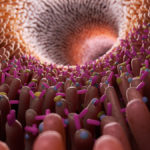By David Blyweiss, M.D., Advanced Natural Wellness
December 14, 2015
- Alcohol’s double-edged sword
- Drink to your health
- How much is just enough?
Now that holiday party season is in full swing, alcohol is flowing more freely than at any other time of the year.
That’s why I’ve been cautioning my patients to drink responsibly and stay off the roads if they’ve had too much. I’ve also been taking the time to explain alcohol’s two-faced nature.
You see, when you drink a little bit you get all kinds of great health benefits. But drink too much and you lose every single bit of the protection a little alcohol can offer you.
This is a strange anomaly that science really doesn’t have an answer for. But we do know that people who drink moderately live longer and healthier than people who overindulge or don’t drink at all.
Open your arteries, improve blood flow for a new health miracle...
Did you know your circulatory system has over 60,000 miles of arteries, veins and other blood vessels, if stretched end to end?
But as you age, your blood vessels undergo changes, which may cause them to stiffen, thicken and get clogged.
GOOD NEWS! Doctors have now identified a “Miracle Molecule” inside your arteries that helps OPEN your arteries and IMPROVE blood flow.
It’s what Dr. Valentin Fuster calls it, "One of the most important discoveries in the history of cardiovascular medicine."To you, that means...
- Healthy blood pressure
- Sharper mind and memory
- Skyrocketing energy and muscular strength
- Increased pleasure and passion in the bedroom
- Improved circulation to every cell and organ in your body
Go here to discover a new natural way to significantly boost the levels of this miracle molecule in YOUR body NOW!
Outside of the occasional celebratory toast, you might enjoy a glass of wine before dinner – even a beer or cocktail – to relax and soothe your racing brain after a long day of work.
It works by affecting certain neurotransmitters in your brain. First off, it dampens the main excitatory neurotransmitter in your body, glutamate.
Secondly, alcohol enhances GABA activity. GABA acts as a natural relaxant to reduce excitability and keep things on even keel. It works by muffling neuronal activity in the brain and soothing frazzled nerve cells.
While these changes in brain chemistry have a calming effect, they’re also what drive alcoholics to drink excessively. But there’s a big difference between enjoying seven drinks a week and swigging seven (or more) a night.
Here’s what a drink or two each day – and not a single one more – can do for you…
Lower your risk of heart disease. Moderate alcohol consumption has repeatedly been shown to improve the entire cardiovascular system. It reduces blood pressure and arterial stiffness. It boosts HDL cholesterol and can also protect against stroke.
Are You Suffering From...
- Love handles and a pot belly
- Romance that isn't what it used to
- Forgetfulness and inattention
- Low (or no) strength and endurance
- A sex drive that's shifted into neutral...or worse
If so...you may have Mature Male Burnout. Click here to discover more about this unique condition and what you can do about it.
One of the ways it works is by blocking something called “Notch” proteins. These are molecules that have been linked to the build-up of arterial plaque. When they’re stimulated, they tend to cause smooth muscle cells to multiply. However, when they’re exposed to alcohol they’re blocked. So the cells in the walls of your arteries don’t grow and thicken.
Cut your chance of type 2 diabetes. It’s no secret that heavy drinking can play havoc with your blood sugar. But when consumed moderately, it turns alcohol can actually lower your chances of diabetes by between one-third and one-half.
Reduce the threat of Alzheimer’s disease and dementia. Here’s an interesting bit of news. Moderate drinkers are almost 25% less likely to develop Alzheimer’s disease and other forms of dementia. This may be due to the heart-healthy benefits I mentioned earlier. That’s because lower blood pressure and healthier arteries keep blood, oxygen and vital nutrients flowing to the brain.
Control fibromyalgia pain. Patients with fibromyalgia who drink low or moderate amounts of alcohol tend to have less severe symptoms than those who don’t drink. This may have something to do with alcohol’s influence on GABA levels, which tend to run low in fibromyalgia patients.
If all these benefits aren’t enough, moderate drinkers have greater longevity than non-drinkers or over-drinkers. In fact, the lowest death rate from all causes is found in people who have one drink per day.
However, drinking too much can undo all of these healthy results. Three or more alcoholic beverages daily creates inflammation, increases blood pressure and can damage your heart muscle. It also takes a big toll on the liver and may speed memory loss by up to six years.
So how can you make sure that alcohol’s Dr. Jekyll doesn’t turn into Mr. Hyde?
A good rule of thumb is a maximum of two drinks per day for the average man, one daily for women. It doesn’t matter whether it’s wine, beer or spirits.
But I’m not talking about a supersized cocktail.
A drink is a 12 ounce can or bottle of beer, a five ounce glass of wine or 1.5 ounces of liquor (either straight or in a mixed drink). If you prefer a cocktail, I suggest using healthy mixers like tonic water or unsweetened juices.
And, of course, recovering alcoholics, those with any adverse reactions to alcohol and those advised against drinking by their doctors should avoid alcohol completely.
To keep your holidays happy and safe, remember to drink responsibly. Don’t drive if you’ve had too much. And don’t drink so much that you’ll regret it the next morning.
Sources:
Krnic M, et al. “Comparison of acute effects of red wine, beer and vodka against hyperoxia-induced oxidative stress and increase in arterial stiffness in healthy humans.” Atherosclerosis. 2011 Oct;218(2):530-5.
Morrow D, et al. “Alcohol inhibits smooth muscle cell proliferation via regulation of the Notch signaling pathway.” Arterioscler Thromb Vasc Biol. 2010 Dec;30(12):2597-603.
Loyola University Health System. “Moderate drinking may protect against Alzheimer’s and cognitive impairment, study suggests.” ScienceDaily. Aug. 2011.
Howard AA, et al. “Effect of alcohol consumption on diabetes mellitus: a systematic review.” Ann Intern Med. 2004 Feb 3;140(3):211-9.
Kim CH, et al. “Association between alcohol consumption and symptom severity and quality of life in patients with fibromyalgia.” Arthritis Res Ther. 2013 Mar 15;15(2):R42.







